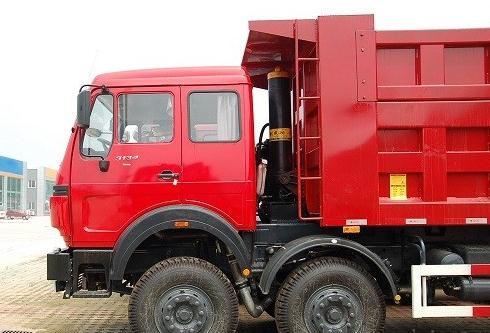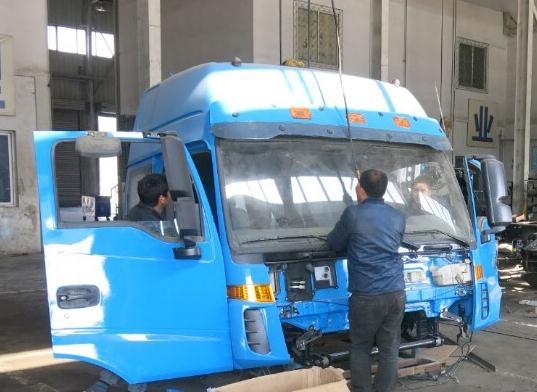Where do dealers go? Aftermarket services can still be done Differential Cap, Differential Vent Cap, Differential Part Ningbo Xiangsheng Auto Parts Co., Ltd. , http://www.partsaa.com
"It's not good to do it." Almost all dealers say that.
In a recent market survey, the reporter visited several distributors of truck brands. Although the market is not worse than last year, some signs of recovery are not enough to be very encouraging. Where do dealers go? 
What is the driving force for persisting?
The current sluggish truck market has caused a large number of dealers to transition and retreat. According to industry insiders, the reason why individual dealers can't parry market shocks is due to the simplification of their operations.
According to one dealer, this is what people often say: "I know who is nude in swimming after the ebb tide." "When the market was good, how can we make money? Now that the market is not good, we can see the difference." To some extent, he "welcomes" such "bad things become good things": "Those small-scale, single business forms, and services that can not keep up with the dealer left, so that the market is more concentrated, it is actually a good thing for us."
The dealer mentioned that he has been in the company for almost 20 years and has developed a deep feeling for the industry. "Think about the hard work you've done. If you give up, you'll definitely feel worse than it is now."
Feelings are on the one hand, and realistic factors he also considers: If profits are not as high as in previous years, but they can still be done, and the experience, contacts, and resources accumulated over many years of operation are all future "realizable assets". , "When will the market fail?" he said optimistically.
Is it better to sell a car than to sell red wine?
The first choice for dealers' transformation is the industrial extension. There are passenger cars and auto repairs. The common idea is to create a logistics company: to provide customers with a complete set of services such as vehicle affiliation, business license, vehicle ownership, and insurance purchase. Not only enriched the company's business, but also provided multiple services to consolidate existing customers.
A dealer in Beijing has also expanded the lease of new energy logistics vehicles on the basis of logistics companies. “Now, selling cars and repairing cars don’t make much money, but the prospects for new energy logistics vehicles are promising. We feel we should seize this opportunity. In fact, it can also be seen as an increase in the original auto finance. However, the current cycle of new energy subsidies is relatively long, and the dealers who do the business have already waited a lot and can't stand it."
There are also dealers who extend their business overseas and use the national “Belt and Road†opportunity to tap demand: “We have been operating this business for more than two years and the business will involve production, assembly, sales and leasing.â€
Obviously, having certain strength is the basis for transformation.
The other direction of the transition is a bit "brain-opening" and revealing. Beijing dealers switched to education and training institutions, and Xinjiang dealers sold red wine. "Red wine can sell better than trucks, and profits are high." The dealer did not give up truck sales at the same time. "As long as it does not take up too much money and there is no inventory pressure, I am willing to wait for the recovery of the truck industry."
Transformation? No, we do depth <br> <br> although each dealer have their own difficulties, each have their own way, but the transition seems to have become a "consensus." However, when the reporter interviewed in Zhejiang, Hangzhou Zhongzhong, the dealer, said that he did not change his mind about the transition or transformation.
“We started in this industry by making accessories. We have always attached great importance to vehicle services at the same time as sales. To this day, we still do service. Indeed, selling cars has entered the era of low profit, but after-market services can still be done.†According to dealers, they are an agent of a certain brand in Zhejiang. Nearly a decade ago, they had already started the construction of a secondary network in the province. At present, the major prefecture-level cities in the province, including some county-level cities, have already built up points. Company and 4S shop, service station. Moreover, unlike other distributors who represent multiple brands and “eggs in different baskets,†the development philosophy is not the same. This dealer only makes one brand in these years. 
"Now a lot of industry markets are being integrated, and distributors are doing the same thing. But when they are big, there is nothing to worry about," she said.
Dealers feel that the market is getting better and worse, but it does not mean that there is no demand. "The market demand is still there, but the role of the intermediate link is weakening, and the dealership is in a weak position." The above-mentioned distributors who do export stated that if the upstream (manufacturer) does not attach importance to the dealer, it will not provide the force policy; the downstream (user) does not Emphasis on distributors, you can directly talk to manufacturers about cooperation, "We have to eat in the middle, what is the cost? Or to be strong."